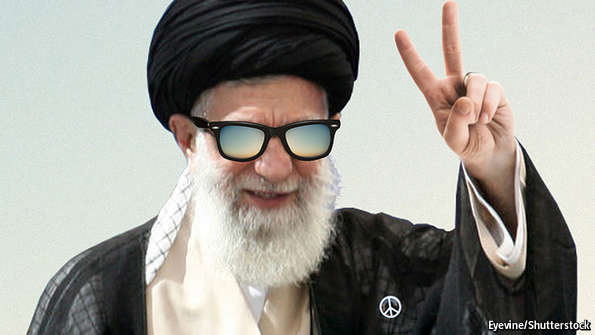Hiyatollah!
IT WAS historic: everyone can agree on that. But whereas some say the deal done in Vienna this week between Iran and six world powers plus the European Union was a breakthrough that keeps nuclear proliferation at bay and begins to mend a 36-year feud with America, others are convinced it was, as Israel’s prime minister, Binyamin Netanyahu, says, a “stunning historic mistake” that sets up Iran as a nuclear power and finances its aggression abroad. Which of those is closer to the truth depends on two things: the quality of the agreement and its effect on Iran’s behaviour.
With Iran, backers as well as critics—especially in America’s Congress, which now has 60 days to scrutinise the deal—both tend to lapse into magical thinking. The critics argue that, if only the world tried hard enough, Iran would give up the guts of its nuclear programme. But the regime sees mastery of the nuclear-fuel cycle as both a badge of national power and insurance against American military attack, so the critics risk holding out for a bargain that never comes. Backers play down the Iranian regime’s antagonism towards America and Israel, its determination to exert influence abroad and its willingness to use violence. They place too much reliance on a transformation of the Iranian regime that may never come about.
Read More: Hiyatollah! | The Economist

